
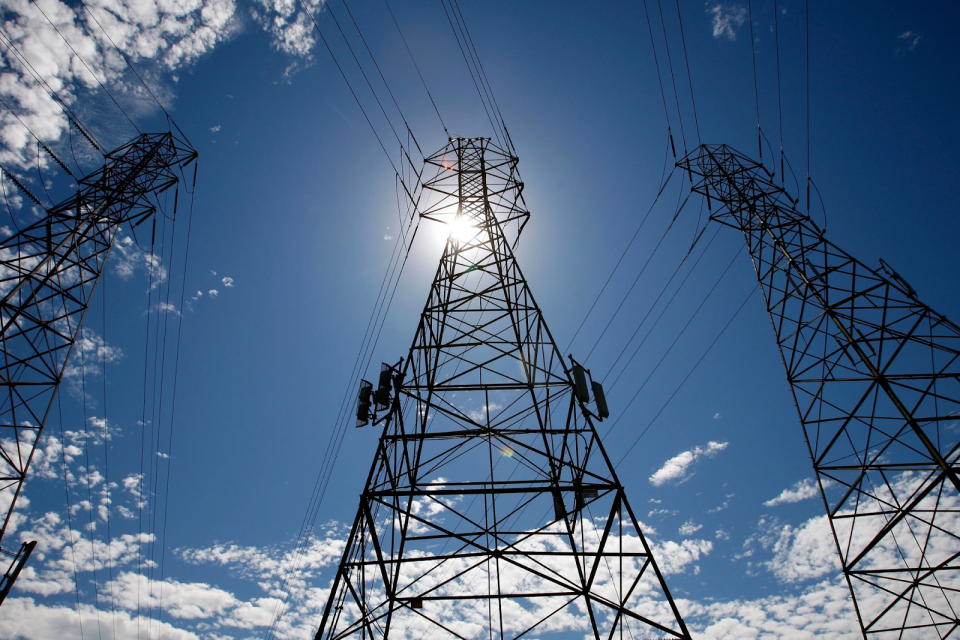
Shutoffs has now become a widely cited word in the media, as well as political discourse. With the continued impacts of the pandemic felt by many United States households, shutoffs have become both a new reality and a looming fear for many. Be it due to non-payment, weather outages, or even software glitches, utility disconnections have unfortunately become familiar to many people across the nation. In a disheartening account of PECO’s glitched automated disconnection system, the electric utility shut off almost 50,000 customers without prior notice (Maykuth 2021). Most troublesome about the event was that many customers did not receive the 72-hrs prior phone call they are supposed to receive when they are on the verge of being shut-off, this in 2018. PECO’s automated notification system failed again in 2019 when customer’s due dates were listed as termination dates (Maykuth 2021). PECO’s incidence, while not directly attributable to the utility, does call into question utility regimes and governance, but also speaks to the model of energy security so advertised by utilities like PECO. Utilities usually advertise their services as safe, reliable, and dependable but incidents like the one described call into question the safety, reliability, and dependability of the services they supply. Similar to the technological mishap experienced by PECO customers, the Colonial pipeline incident threatened regional energy supply and led to economically draining shortages (Golden 2021). These events leave us with questions about expanded forms of responsibility and security that may be needed from utility companies in a tech-heavy society. like
Utility insecurity is a serious issue that has, as a result of the pandemic, more recently taken foothold in public media discussions. Just like in Pennsylvania, New Jersey’s low-income residents face serious economic hardship and utility insecurity following the advent of the pandemic (Johnson 2021). In fact, estimates suggest nearly 600,000 customers owe more than $570 million in utility arrears (Johnson 2021). Middle-class households have also been thrust into energy poverty and owe significant amounts on their utilities (Johnson 2021). This speaks to the negative impacts that continue to be felt across social classes in the United States as a result of the pandemic. The New Jersey utility shutoff moratorium is set to expire June 30th, which brings another dimension to the crisis and calls into question the effectiveness of moratoria policies implemented nation-wide. While companies are offering assistance and federal stimulus has funneled more money into programs like LIHEAP, some households are facing bills in the thousands, which can seriously set them back financially for several years.
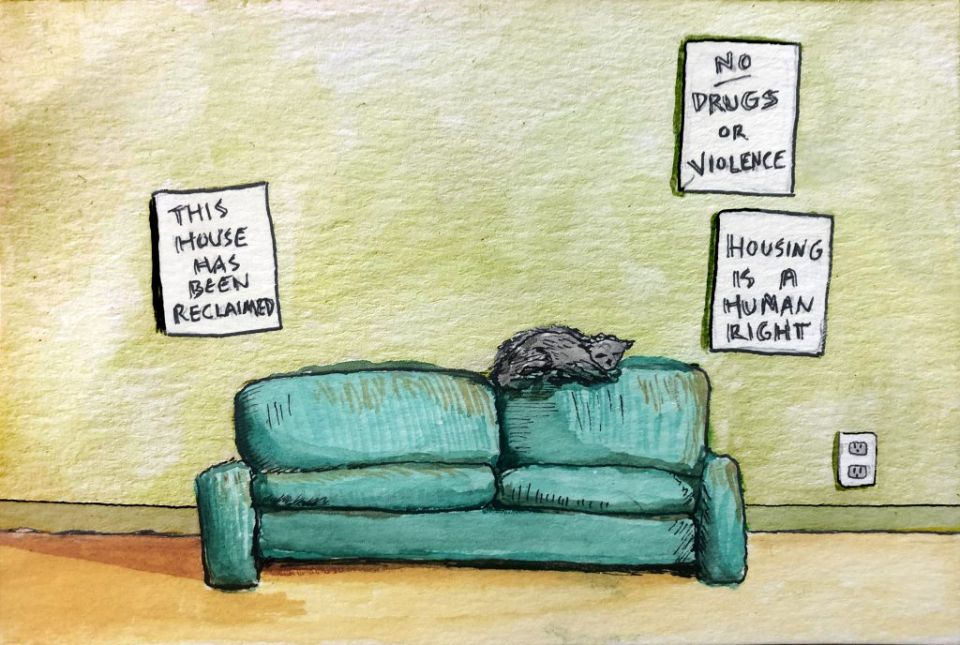
The pandemic’s health and economic crises have pushed many families into emergency mode, with some families having to find alternative living arrangements when they were evicted from properties they rented (Marin 2021). Stories like that of homesteaders in Philadelphia, people who take on temporary residence in foreclosed homes, shed light on the intersection of utility burden and insecurity, and housing insecurity (Marin 2021). Stories told by homesteaders should open up deeper considerations of housing and energy rights, and the vicious cycle that both energy and housing poverty can create for many families that are low-income and working class. It wouldn’t be surprising if a portion of the homes cited in the article were foreclosed since the start of the pandemic.
In a sub-thematic analysis of utility disconnections, the recent weather disruptions witnessed in Texas this past February, and those expected in California this summer, speak to the regimes of energy supply and energy security in the nation.In preparation for this coming summer, energy providers are testing their grids to see whether they meet the projected energy demands needed for the season (Rovins 2021). A case in point local to the Philadelphia region is PJM, the largest electricity grid operator in the United States, serving Pennsylvania (including PECO), and twelve other states. Grid vulnerabilities must be continually assessed , and energy suppliers have to re-evaluate whether they are able to support customer demands or whether they need to step up their games, like the California suppliers (Lozano 2021). PJM, however, has stated they will be able to meet the projected summer demands given byenergy forecasters, who predicted that peak loads would not exceed 150,000 MW.
The security of energy supply has been under threat several times this past year, especially following the devastating Texas winter storm. When Texas authorities started to point fingers, however, entities like PBPA intervened to repurpose gas lines to provide power but also to identify the issue at hand that led to such a poor handling of the event (Shepperd 2021). However, investigations into Texan utility regimes showed that, even when prompted to build more power suppliers in ten years, Texan utilities did not have enough incentive to build back-up power generation plants (Golden & Dudley 2021; Osborne et al. 2021). State legislators continued to ignore suggestions to build more plants and left Texas’ grid vulnerable to emergencies like the one this past winter (Golden & Dudley 2021; Osborne et al. 2021). Related to earlier discussions of energy supply reliability, the Texas disaster calls into question utility practices and their interest in customers’ wellbeing, which seem to be misplaced over profits.
Alicia Victoria Lozano, "California warned to brace for another summer of energy blackouts", contributed by Taeya Boi-Doku and Alison Kenner, The Energy Rights Project, Platform for Experimental Collaborative Ethnography, last modified 24 June 2021, accessed 3 June 2022. https://energyrights.info/content/california-warned-brace-another-summer...
Andrew Maykuth, "Peco improperly shut off nearly 50,000 customers because of computer glitches", contributed by Morgan Sarao and Alison Kenner, The Energy Rights Project, Platform for Experimental Collaborative Ethnography, last modified 1 June 2021, accessed 3 June 2022. https://energyrights.info/content/peco-improperly-shut-nearly-50000-cust...
Ben Shepperd, "PBPA Stepped Up in the Face of February’s Winter Storm", contributed by James Adams, The Energy Rights Project, Platform for Experimental Collaborative Ethnography, last modified 31 May 2021, accessed 3 June 2022. https://energyrights.info/content/pbpa-stepped-face-february’s-winter-storm
Donna Rovins, "Region’s electric grid operator is ready to meet summer demand", contributed by Alison Kenner, The Energy Rights Project, Platform for Experimental Collaborative Ethnography, last modified 1 June 2021, accessed 3 June 2022. https://energyrights.info/content/region’s-electric-grid-operator-ready-meet-summer-demand
James Osborne, Eric Dexheimer and Jay Root, "'Collective amnesia': Texas politicians knowingly blew 3 chances to fix the failing power grid", contributed by James Adams, The Energy Rights Project, Platform for Experimental Collaborative Ethnography, last modified 31 May 2021, accessed 3 June 2022. https://energyrights.info/content/collective-amnesia-texas-politicians-k...
James Osborne, "Fixing Texas' unreliable power grid won't be cheap or easy. Can we trust politicians to get it done?", contributed by James Adams, The Energy Rights Project, Platform for Experimental Collaborative Ethnography, last modified 31 May 2021, accessed 3 June 2022. https://energyrights.info/content/fixing-texas-unreliable-power-grid-won...
Max Marin, "Squatting for survival in Philadelphia: What it’s like to live in a ‘takeover house’ ", contributed by Briana Leone and Alison Kenner, The Energy Rights Project, Platform for Experimental Collaborative Ethnography, last modified 2 June 2021, accessed 3 June 2022. https://energyrights.info/content/squatting-survival-philadelphia-what-it’s-live-‘takeover-house’
Paul Takahashi, Marcy de Luna and James Osborne, "'I lost my best friend': How Houston's winter storm went from wonderland to deadly disaster", contributed by James Adams, The Energy Rights Project, Platform for Experimental Collaborative Ethnography, last modified 31 May 2021, accessed 3 June 2022. https://energyrights.info/content/i-lost-my-best-friend-how-houstons-win...
Renee Dudley and Daniel Golden, "The Colonial Pipeline Ransomware Hackers Had a Secret Weapon: Self-Promoting Cybersecurity Firms", contributed by James Adams, The Energy Rights Project, Platform for Experimental Collaborative Ethnography, last modified 31 May 2021, accessed 3 June 2022. https://energyrights.info/content/colonial-pipeline-ransomware-hackers-h...
Tom Johnson, "Hundreds of thousands of utility customers facing shut-offs", contributed by Alison Kenner, The Energy Rights Project, Platform for Experimental Collaborative Ethnography, last modified 31 May 2021, accessed 3 June 2022. https://energyrights.info/content/hundreds-thousands-utility-customers-f...
This May edition of The Energy Rights Project’s Media Brief series continues to document energy infrastructure, energy security, and access to energy services. This month’s discussion is framed by anthropologists Dana Powell (2018) and Dominic Boyer’s (2019) scholarship on energy politics. Artifacts collected by Energy Rights Project team members continue to shed light on the intersecting vulnerabilities that have been exacerbated by the pandemic, as well as newly exposed energy governance regimes that have contributed to supply capacity disruptions. This is discussed in relation to climate actions and energy transition rights.
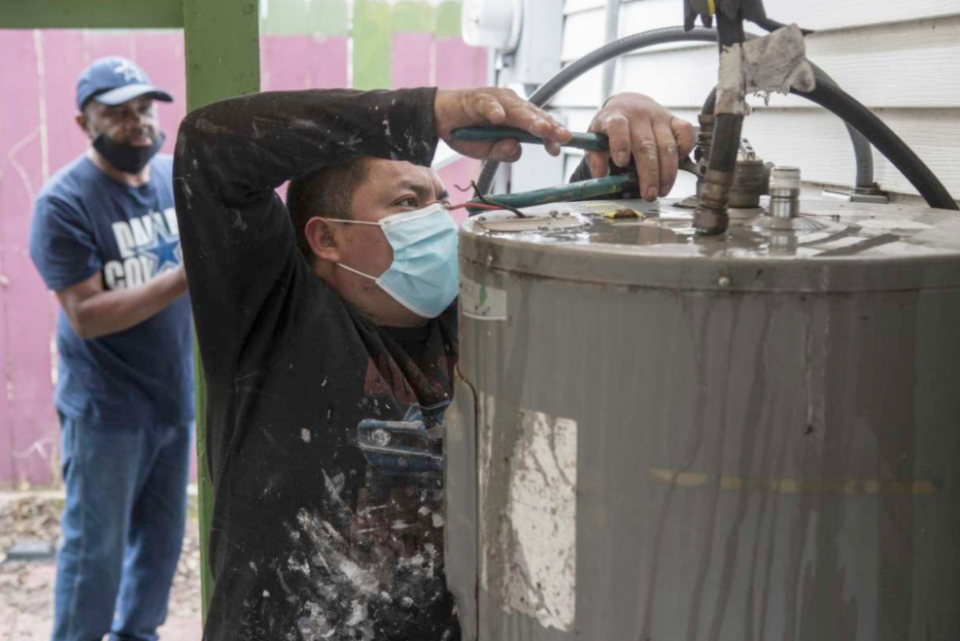
May’s energy stories included discussions of energy insecurity, energy security, as well as energy supply and transitions. Focusing on energy pipeline projects, the vulnerabilities of power grids across states, utility bill affordability, and recent court rulings on green energy actions, energy news reflected concepts advanced in energy studies scholarships (such as greening capitalism, transfusions of power, energopower, and energopolitics) by academics like Boyer (2019) and Powell (2018). The concept of greening capitalism, for example, is presented in Powell (2018)’s work Landscapes of Power, and is indicative of dishonest investment in green energy transitions and productions, which Dr. Powell (2018) specifically attributes to false science reports (71). In a similar way, articles presented in this media brief reflect ways in which utilities, like PGW for example, invest or lobby against climate policies even while making claims that they are investing in green energy. Conceptualizing greening capitalism aids understanding of the duplicitous actions taken by some energy suppliers, actions running counter to the health and safety of both people and the planet, casting doubt on the trust many consumers place in their energy suppliers (Ketan 2021; Osborne 2021; Osborne et al. 2021; Takahashi et al. 2021). Another concept to note from Dr. Powell (2018)’s work is the idea of ‘transfusion of power’, or when power is taken out of its rightful host, in the cases of energy extraction and supply it could be landowners or small business owners, and parallels eminent domain discussions introduced in one of the articles presented (xiii). Talks of transfusion of power also shed light on the interwoven and intersecting health and social vulnerabilities that are inherent in energy and climate justice discussions (Johson 2021; Pecan Street 2021). Transfusion of power is particularly relevant in analyses of and deliberations on pipeline constructions and other energy supply projects that disrupt people’s lives and deprive individuals of the sovereignty over their properties, be it land or be it small businesses.
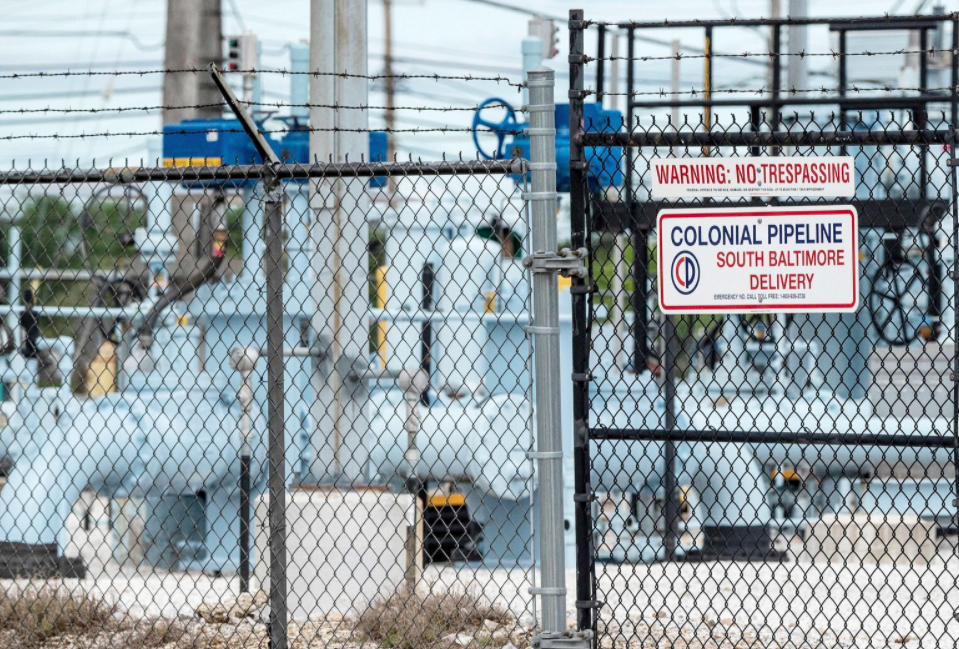
The artifacts collected this past month do well in exemplifying scholarly concepts presented by Boyer (2019) in Energopolitics. Particularly useful to analyses of this past month’s media are Boyer’sconcept of energopower and Boyer and Howe’s (2019) aeolian politics. Energopower is the process through which power, primarily political in this case, is created and reinforced through energy governing regimes that include electricity and fuel sources such as gas, coal, or oil (Boyer 2019,14). By extension, aeolian politics in the Mexican energy landscape constitute any and all ways in which energy prospects, aims, and desires shape ways in which local governments run and make laws, take actions, etc. (Boyer 2019, 22). For Pennsylvania, for example, aeolian politics would be roughly equivalent to petroleum politics or coal politics; in other words, Pennsylvania’s local politics could be influenced by coal and oil suppliers’ energy prospects and lobbiers. Energopower fundamentally shapes energopolitical regimes and works against energy transitions so desperately needed at the moment, like the continued constructions of pipelines and capital extractivism in vulnerable communities (Boyer 2019). Noteworthy analyses of energopower regard its disruptive nature for the ecosystems where energy extractivists takeover, which brings to light the many stakeholders existing in energy realms (even beyond the environment itself).
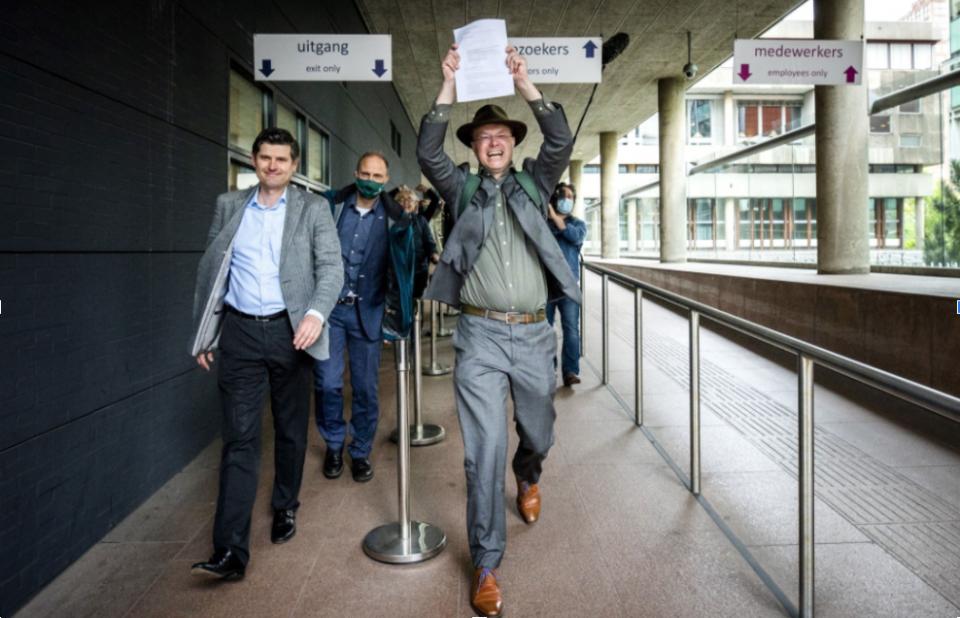
There have been significant developments on both national and international scales this past month regarding climate action, and more specifically the transition away from fossil fuels. Yet simultaneously, energopower structures and those actors who have wielded the most power (literally and metaphorically) that support a carbon intensive future are pushing back to sustain their positioning. One example comes from a dutch court, which ruled that multinational oil and gas giant Shell is obliged to cut its carbon dioxide emissions by 45 percent by the year 2030 to align with the goals of the Paris Climate agreement. This includes carbon emissions released when it extracts and refines its products, in addition to those emissions released when its product is used. In the past Shell and other fossil fuel companies have done everything in their power to maneuver around climate accountability through strategies like extensive lobbying and creating public relations materials that glorify their minimal green investments and “net-zero” plans, which heavily rely on reactive tactics, such as utilizing carbon capture technologies to justify a fossil-heavy future (Joshi 2021).
Although policy and planning for decarbonization continue to gain traction in the United States, the fossil fuel industry and its political proponents continue to push back, and defend their industry by framing arguments which speak to the benefits that fossil fuel industries have for low-income and rural communities. Common arguments against a green energy transition are that it will eliminate jobs for those who are employed in the fossil fuel industries, leaving employees jobless and with a set of skills for an industry that has become obsolete. In Pennsylvania, a new natural gas pipeline is now online, and some state politicians have praised this new energy infrastructure, given that the oil and gas industries in PA have significant economic impact within the state, supporting over 320,000 jobs and contributing over $45 billion to the economy (Baker 2021). However, there is also immense opportunity and planning for a green energy transition to create equally as many jobs and positively influence the economy as well. Biden’s infrastructure plan, for which a bipartisan deal is expected within the next month, would put federal funding towards reclaiming abandoned coal mines and capping old oil and gas wells. It would also pay for and train workers to run wind and solar projects, build electric vehicle charging stations, and create energy-efficient homes and businesses, which is expected to create thousands of new jobs. (Silverstein 2021). Another argument is that fossil fuels, like natural gas, are currently and will continue to be the most affordable fuel. One of the biggest obstacles preventing Philadelphia from reaching their ambitious climate change goal of being carbon neutral by the year 2050 is Philadelphia Gas Works (PGW), the nation’s largest publicly owned gas utility. As a public utility, PGW is completely reliant on ratepayers for their income, and a major concern that PGW has articulated regarding decarbonization is that the most affluent ratepayers in the city will be the first to transition away from fossil fuels, leaving a larger percentage of low-income customers who can’t afford to transition, and can’t afford to pay their gas bills, as rates will increase as less households are subscribed to natural gas. Christine Knapp, director of Philadelphia’s Office of Sustainability, is spearheading a project that explores how PGW can decarbonize following a “just transition” framework so that energy will be affordable for energy vulnerable customers, will not leave behind PGW’s nearly 1,600 person strong workforce, and will not neglect Philadelphia’s aging infrastructure for natural gas (Phillips 2021).
Earl Baker, "Earl Baker: A new energy revolution in Pa.", contributed by Briana Leone, The Energy Rights Project, Platform for Experimental Collaborative Ethnography, last modified 28 May 2021, accessed 3 June 2022. https://energyrights.info/content/earl-baker-new-energy-revolution-pa
Ketan Joshi, "The Surprise Court Ruling That Cut Through Shell’s Greenwashing Facade", contributed by James Adams, The Energy Rights Project, Platform for Experimental Collaborative Ethnography, last modified 31 May 2021, accessed 3 June 2022. https://energyrights.info/content/surprise-court-ruling-cut-through-shell’s-greenwashing-facade
Susan Phillips, "As Philadelphia works to tackle climate change, a question emerges: Is PGW on board?", contributed by Briana Leone and Alison Kenner, The Energy Rights Project, Platform for Experimental Collaborative Ethnography, last modified 1 June 2021, accessed 3 June 2022. https://energyrights.info/content/philadelphia-works-tackle-climate-chan...
Taeya Boi-Doku, 7 June 2021, "RURAL AMERICA READIES FOR DECARBONIZATION AND GRID MODERNIZATION", contributed by Taeya Boi-Doku, The Energy Rights Project, Platform for Experimental Collaborative Ethnography, last modified 6 September 2021, accessed 3 June 2022. https://energyrights.info/content/rural-america-readies-decarbonization-...

In the month of May we’ve also observed how federal policies and statewide decisions can prioritize utility customers and reliable, sustained access to energy over utility company profit margins. A proposed $30 billion low-interest loans program for electric, water and sewage and broadband providers is working its way through the U.S. Senate, and these loans would allow utilities to recoup money in order to stay afloat without resorting to fines and shutoffs, which utilities have long justified as a way to force people to keep up with bills although penalizing customers often proves to be an ineffective way to get struggling customers to pay their bills. The loans would be conditional on utilities canceling debts for low-income households, and two years after the end of the pandemic, public and small utilities could see the loans forgiven for the amount of outstanding arrears as long as they had not reverted to using punitive measures. Utilities that disconnect or fine customers would be obliged to immediately repay the loan in full. This program, along with the recently passed $35 billion federal investment in water and sanitation infrastructure maintenance, indicates that there is a broad cultural shift happening, which acknowledges that lacking federal funding for utility infrastructure maintenance has led to utility inaffordability and unreliable energy access, as rising utility rates and shut-offs are often justified by utility companies to afford utility infrastructure maintenance (Lakhani 2021).
Another action that shows a renewed (if not totally new) federal interest in prioritizing constant and reliable access to energy is the Tennessee Valley Authority’s (TVA) $7.3 million program named School Uplift, which will train personnel in 160 public schools across seven states on how to reduce energy use. This program will take place over three years, and 11 schools that have completed a pilot program already saved almost 20% on annual energy bills from the behavioral changes they’ve implemented. Additionally, three participating schools have been awarded grants for energy retrofits worth $400,000 each, and five schools have won TVA grants for solar pavilions that will serve as outdoor classrooms (The Associated Press 2021). This robust program comes as a positive surprise, as the TVA has historically failed to proactively and appropriately address energy crises. The TVA is often remembered for their failure to appropriately handle the coal ash spill at the Kingston Coal Plant that occurred in 2008, the largest coal ash spill in the United States. In response to the spill, the TVA paid Jacobs Engineering $64 million to clean it up, and according to Jacobs employees, they lacked adequate safety equipment on the job, and ended their days covered in ash. Of the 900 cleanup workers, more than 30 have died. Another 200 workers are sick or dying (Gaffney 2018).
In Pennsylvania, cases demonstrating the intricacies of power relations within energy markets and surrounding energy regulation emerge. The Federal Regulatory Energy Commission had approved a $1 billion-dollar new natural gas pipeline from Pennsylvania to New York, but the project was put on hold initially due to COVID-19, and now due to environmental regulators in New York and New Jersey not approving water permits for the project. After the permit denials, National Grid, a New York gas utility, imposed a moratorium on signing new customers, and attributed it to not having enough gas to service customers without the pipeline. That prompted New York Governor Andrew Cuomo to threaten to revoke National Grid's license to operate its gas utility, which ultimately led National Grid to end the moratorium and pay $36 million, mostly on conservation and clean energy projects. In this case, National Grid’s attempt to thwart environmental regulators by claiming that they would not have enough fuel to service more customers, which evidently was false as they ended up revoking the moratorium, failed due to state interference (Reuters 2021). In another case of state interference siding on the side of customers, the Pennsylvania Utility Commission (PUC), which is a public statewide regulatory body, voted against building a new overhead powerline project that would have taken land away from 200 landowners, including farmers and business owners (Benscoter 2021). By refusing to grant eminent domain to PJM Interconnections, PUC challenged predominant energopower structures, however this infrastructure project is allegedly necessary to address energy market inefficiencies and reliability issues which may impact residents’ energy security in the future.
During COVID-19, internet access has become essential in order for individuals to remain involved in most facets of society, such as attending school, going to work, receiving healthcare, and attending community events. The “digital divide”, and the communities which are disproportionately impacted by a lack of access to broadband internet and related technologies, including low-income communities and Black and Latino households, predated COVID-19 but was brought into stark relief when stay-at-home orders were mandated. It’s important to note that in this context, the digital divide refers specifically to households that lack access to broadband internet, which is the speed of internet that is required in a household in order to have multiple devices connected to the internet and used at the same time. Although in Philadelphia there are programs like PHLConnectedED, which has provided free home internet service for more than 35,000 families, and Keyspot Innovation and Technology Centers, which will open as free computing centers for families, these attempts to bridge the digital divide still leave people behind (Torrence 2021). Bridging the “digital divide” requires far more than creating ad-hoc programs that bring technologies into impacted communities only in response to a global pandemic: to truly bridge the digital divide it is required that funding and other resources be reallocated and prioritized in communities most affected by the digital divide. The FCC currently estimates that 30 million Americans do not have broadband access, including more than six out of ten rural residents in the country. In Philadelphia alone, at least five zip codes have less than 50% of households using broadband internet. President Biden, signaling his priority of taking steps to bridge the digital divide during his time as president, has proposed spending $100 billion to bring high-speed broadband internet to all parts of the country, and prioritizing support for networks that are owned and operated by not-for-profit entities (Patch 2021).
Jana Benscoter, "Central Pa. landowners relieved as PUC rejects controversial powerline project: ‘We fought hard’", contributed by Alison Kenner and Briana Leone, The Energy Rights Project, Platform for Experimental Collaborative Ethnography, last modified 28 May 2021, accessed 3 June 2022. https://energyrights.info/content/central-pa-landowners-relieved-puc-rejects-controversial-powerline-project-‘we-fought-hard’
Martin K. Torrence, 31 May 2021, "The infrastructure supporting the deployment of 5G is critical for digital equity", contributed by Andrew Rosenthal, The Energy Rights Project, Platform for Experimental Collaborative Ethnography, last modified 30 May 2021, accessed 3 June 2022. https://energyrights.info/content/infrastructure-supporting-deployment-5...
Nina Lakhani, "Democrats unveil $30bn bill to cancel water debts and bail out utility firms", contributed by Morgan Sarao, The Energy Rights Project, Platform for Experimental Collaborative Ethnography, last modified 31 May 2021, accessed 3 June 2022. https://energyrights.info/content/democrats-unveil-30bn-bill-cancel-wate...
Patch Staff, 30 May 2021, "The Digital Divide: How Philadelphia Area Compares In Internet Usage", contributed by Andrew Rosenthal, The Energy Rights Project, Platform for Experimental Collaborative Ethnography, last modified 30 May 2021, accessed 3 June 2022. https://energyrights.info/content/digital-divide-how-philadelphia-area-c...
Reuters, "U.S. gives Williams more time to build Pennsylvania-NY natgas line", contributed by , The Energy Rights Project, Platform for Experimental Collaborative Ethnography, last modified 28 May 2021, accessed 3 June 2022. https://energyrights.info/content/us-gives-williams-more-time-build-penn...
The Associated Press, "Federal utility to spend $7.3M on energy training in schools", contributed by Alison Kenner, The Energy Rights Project, Platform for Experimental Collaborative Ethnography, last modified 31 May 2021, accessed 3 June 2022. https://energyrights.info/content/federal-utility-spend-73m-energy-train...
Boyer, Dominic. Energopolitics. Duke University Press, 2019. https://doi.org/10.1215/9781478004394.
Gaffney, Austyn. “Hundreds of Workers Who Cleaned Up the Country’s Worst Coal Ash Spill Are Now Sick and Dying,” NRDC, December 17, 2018, https://www.nrdc.org/stories/hundreds-workers-who-cleaned-countrys-worst-coal-ash-spill-are-now-sick-and-dying.
Powell, Dana. Landscapes of Power: Politics of Energy in the Navajo Nation. Duke University Press, 2018. https://www.dukeupress.edu/landscapes-of-power.